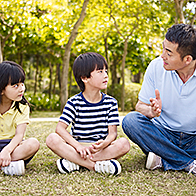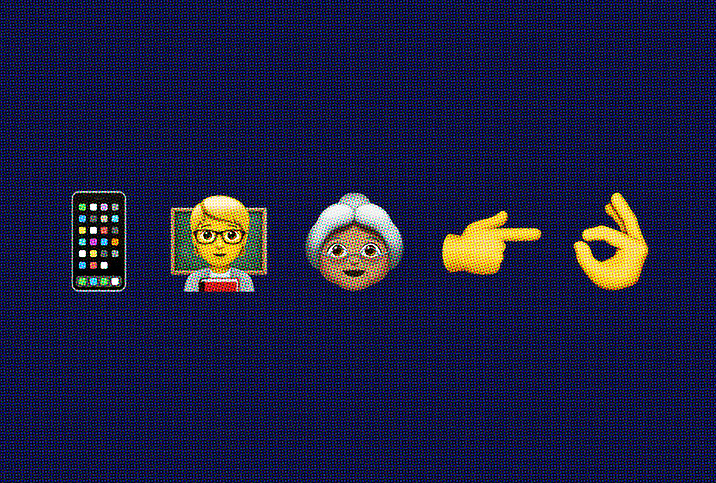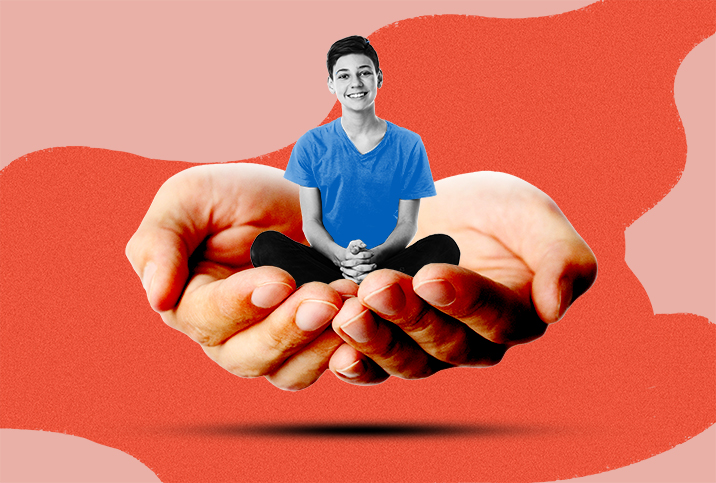All I Really Need to Know But Didn't Learn in Kindergarten

I worked as an on-again, off-again preschool teacher for a couple of years in my early 20s.
During that time, I often thought about what it would look like if toddler rules were applied to adult life. Imagine getting pulled over for a minor speeding infraction and the officer saying, "This time it's a warning, Mr. Woogmaster, but next time we're going to take away your bourbon privileges for the month."
Toddler-legislated America is my personal vision of dystopia.
Recently, this same line of thinking got me wondering about intimacy and how the earliest inclinations of social education might influence our attitudes and ideas concerning sexuality, affection and interpersonal space.
Attachment and advocacy
Learning about physical closeness and personal sexual awareness starts in the household with fundamental early experiences such as toilet training and bathing, according to Carol Ellison, Ph.D., a specialist in sexuality and intimacy, as well as a clinical psychologist, a lecturer and an author who has regularly taught at the University of California at Berkeley. She described the home as a vivid place of learning about personal affection and interpersonal physicality.
"It's just so embedded in family life," she said. "Are people in the family comfortable with nudity? Are parents comfortable expressing affection in front of their children? Is there, you know, regular touch between the parents? Is there even flirtation between the parents? That can be sex education."
While it may be less direct than a straight line, experts indicate early experiences of attachment often influence adult relationship-forming skills.
This kind of modeling is important to be aware of, but there are many factors to be considered for each individual. In the first year of life, an infant experiences overwhelming levels of sensory introduction. In the years that follow, the influences on interpersonal behavior only become more and more compounded and, sometimes, conflicting.
We can track a connection, developmentally, between those initial formative years and our adult relationship skills. While it may be less direct than a straight line, experts indicate early experiences of attachment often influence adult relationship-forming skills.
Flash forward to adulthood
"There's this sort of burgeoning field, particularly in relationship therapy and marriage and family therapists, talking about attachment theory," said sex therapist Lawrence Siegel, M.A., C.S.E., a clinical sexologist in Boynton Beach, Florida.
"Our earliest attachment experiences have a lot to do with those relationships we form later in life," he added. "People often experience this from the maternal side of their household and that there is a relationship between this type of attachment and adult expressions of affection and intimacy.
"If there is what we call 'secure attachment' as an infant, which means they're getting a good kind of attention, they're getting their needs met, and there's emotional satisfaction with the relationship or the bonding that's occurring," Siegel explained. "That seems to have a really positive impact on people's ability to engage in an intimate relationship and really sort of being a little bit more open emotionally with a partner later on in their life."
In certain cases, the earliest influences might cause a cascading effect in either positive or negative directions. Consider this theoretical example:
- A boy has unhealthy attachment experiences early in life.
- These experiences continuously influence negative or discordant social interactions through childhood and into preadolescence for the boy.
- The boy meets a potential partner and falls in love.
- The boy's cumulative discordant attachment experiences cause friction and a potentially traumatic first romantic/sexual relationship. The relationship ends, and the trauma carries into the next relationship.
- The cycle continues.
This isn't a psychological playbook or blueprint, but it's one of the broad possibilities surrounding worst-case intimacy development scenarios, pointing to the imperative aspect of early attachment modeling and advocacy.
But let's be honest: We, as adults, are always fallible, and parenting is a challenge.
The language of sexual awakening
"When does sex education really start?" Siegel asked. "I will say at birth."
We tend to euphemize sexuality and insulate children from adult expressions of physical affection and intimacy. For some people, this upbringing possibly sets the stage for a lifetime of patterns that could manifest as either enthusiasm or distaste for displays of public affection or intimacy.
As always, it starts with the basics.
"By the time kids are, let's say, 3 to 5 years old, we should already be teaching them about the proper names of their body parts. All of their body parts," Siegel said.
He explained that children need knowledge about their bodily functions and the sensory functions of genitalia, and lessons about proper displays of touch with concepts of privacy and consent in mind.
Siegel cautioned against talking about the body with children in terms of right and wrong, but instead emphasizing the concept of privacy as a contrast to what is otherwise public domain for children's exploration. You could think of this as the point where the seeds of consent culture are either nourished or suffocated.
This theme carries into nonverbal communication, as well. Ellison explained that counselors and therapists often see couples composed of two people with potentially opposing values about touch and affection.
"Sometimes couples come into sex therapy and one comes from an affectionate family where there was lots of touching and the other feels almost repulsed by that and it's not natural [to them]," Ellison said. "And yet they've got children, so what do they model for their children? How do they find their ways into physical touch and affection?"
Watercooler sex talk
"I'm going to use a quote from Elvis Costello: 'It's the words we don't say that scare me so,'" Siegel said.
It seems as though two facts are eminently true: We don't really talk honestly and transparently about sex, affection or intimacy as children or as adults; and when we do talk about these topics, we often use the wrong words. Sometimes our errors are due to human flaws and sometimes they're due to a sort of societally accepted, yet quietly dishonest communication in everyday language.
We mask the meaning of words in jargon, which piques the curiosity of children without educating them in the process. We sheepishly hide our affections from their ever-watchful eyes for fear based on antiquarian models of morality and sexual expression. A trend begins at birth which carries right through kindergarten and beyond, requiring covert sexual exploration, expression and enthusiasm throughout a person's lifetime.
"You know, so many people tend to be just in such fear of telling their kids too much, especially as they get closer to puberty, as the changes in their body are becoming unavoidable and impossible to ignore as sexuality is really budding out of them," Siegel explained. "The biggest issue, I think, is that most parents don't say anything. They ignore it."
Certain social mores push conversations about intimacy, affection and sexuality to the back of the shelf, where they stay in the shadows. All we have to do as a society to break this pattern is to start talking more openly and honestly about sex and what it really means to interact with and touch one another in romantic and recreational ways.
These conversations can be difficult, but they can also be fun. It's never too late to start talking about intimacy in real terms with the ones you love, no matter what grade you're in.



















